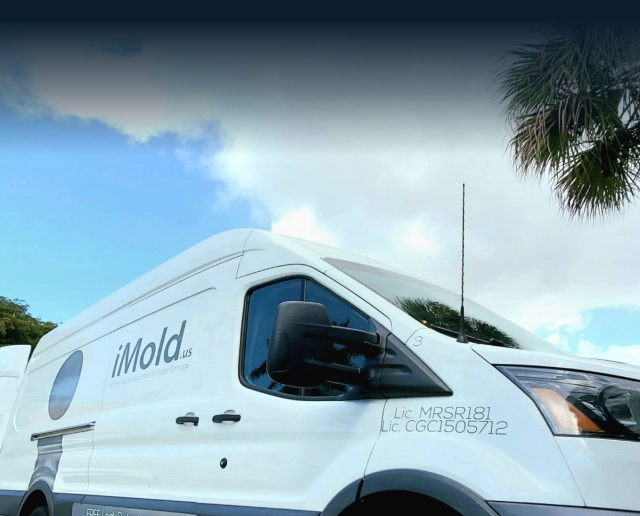Living in Florida you more than likely have heard the horror stories about toxic mold, expensive mold remediation, and denied homeowners insurance claims. At iMold.us we want you to be aware of this common question…will my homeowner’s insurance cover mold?
Mold needs moisture to thrive. Problems can arise for homeowners when the presence of persistent moisture goes undetected or unresolved, leading to widespread mold growth. Moisture can result from high indoor humidity, flooding, or a leaky roof or dishwasher.
Whether mold damage is covered by the homeowner’s insurance often comes down to the source of that moisture. Take an hour or two to review the language of your policy, especially as it pertains to water damage. Look for mold exclusions or limitations. Call your agent if you have any questions about your coverage.
In most cases, home insurance covers mold if a “covered peril” caused the mold. Your home insurance policy will likely pay for repairs and clean-up when one of these acts is present. Home insurance policies usually don’t cover mold that results from a preventable water leak, flooding, or high humidity.
Here are some of home insurance’s covered perils:
- Fire
- Lightning
- Vandalism or malicious mischief
- Damage caused by vehicles
- Theft
- Falling objects
- Accidental discharge or overflow of water or steam from plumbing, heating, air conditioners, sprinkler systems, or household appliances
These are “sudden and accidental” incidents. Insurance companies typically cover this type of damage. Non-weather-related water damage is one of the most common home insurance claims and one of the most expensive.
When home insurance will likely NOT cover you:
Broken or missing shingles on your 40-year-old roof allows water into the attic. Water saturates wood and insulation and leads to mold in the attic.
Mold forms in your shower. You don’t think much about it until one day you notice that it’s unsightly and you’re concerned about whether it’s making your family sick.
In these cases, an insurer will likely not cover the damage. Why? An insurance company expects you to take care of your house. That means properly ventilating the bathroom and replacing an old roof. An important reason to stay on top of home maintenance.
Is my home covered in case of flood?
The standard homeowner’s insurance policy does not cover water damage caused by a flood. If a flood causes water damage that leads to mold, the resulting mold issue will not be covered by your home insurance policy.
A separate flood policy will cover mold and mildew, if it’s not caused by the homeowner’s failure to inspect and maintain the property after the flood. That means, once you can get back into your home, you need to start trying to clean up and keep mold from growing or spreading. Utilizing a professional licensed water remediation company to assist with this clean-up is the best way to combat mold growth after a flood.
Buying mold insurance
If you don’t have mold coverage, you can buy an endorsement to your insurance policy that adds mold coverage. An endorsement is when an insurance company adds additional coverage to a regular home insurance policy, for an additional fee.
Mold endorsements will cost you more in humid areas and in older homes made with materials more prone to mold. The cost can range between $500 and $1,500 annually.
Some home policies provide a limited amount of coverage for mold claims. This can be by capping the amount the insurer will pay, for example at $5,000, or stating that the insurer will only pay for certain services, such as clean-up, and excluding others, such as testing and remediation.
The best practice if you have questions would be to contact your homeowner’s insurance agent.

